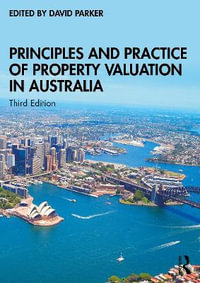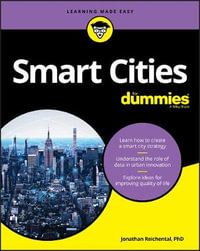
Basic Quantitative Research Methods for Urban Planners
By: Reid Ewing (Editor), Keunhyun Park (Editor)
Paperback | 11 March 2020
At a Glance
Paperback
RRP $75.99
$68.25
10%OFF
Aims to ship in 7 to 10 business days
ISBN: 9780367343248
ISBN-10: 036734324X
Series: Apa Planning Essentials
Published: 11th March 2020
Format: Paperback
Language: English
Number of Pages: 344
Audience: Professional and Scholarly
Publisher: Taylor & Francis Ltd
Country of Publication: GB
Dimensions (cm): 24.61 x 17.4 x 1.83
Weight (kg): 0.57
Shipping
| Standard Shipping | Express Shipping | |
|---|---|---|
| Metro postcodes: | $9.99 | $14.95 |
| Regional postcodes: | $9.99 | $14.95 |
| Rural postcodes: | $9.99 | $14.95 |
How to return your order
At Booktopia, we offer hassle-free returns in accordance with our returns policy. If you wish to return an item, please get in touch with Booktopia Customer Care.
Additional postage charges may be applicable.
Defective items
If there is a problem with any of the items received for your order then the Booktopia Customer Care team is ready to assist you.
For more info please visit our Help Centre.
You Can Find This Book In
This product is categorised by
- Non-FictionEarth Sciences, Geography, Environment, PlanningRegional & Area PlanningUrban & Municipal Planning
- Non-FictionEconomicsEconometricsEconomic Statistics
- Non-FictionMathematicsProbability & Statistics
- Non-FictionArts & EntertainmentArchitectureLandscape Art & ArchitectureArchitectural Aspects of City & Town Planning
- Non-FictionSociety & CultureSocial GroupsUrban Communities
- Non-FictionReference, Information & Interdisciplinary SubjectsResearch & InformationResearch Methods























